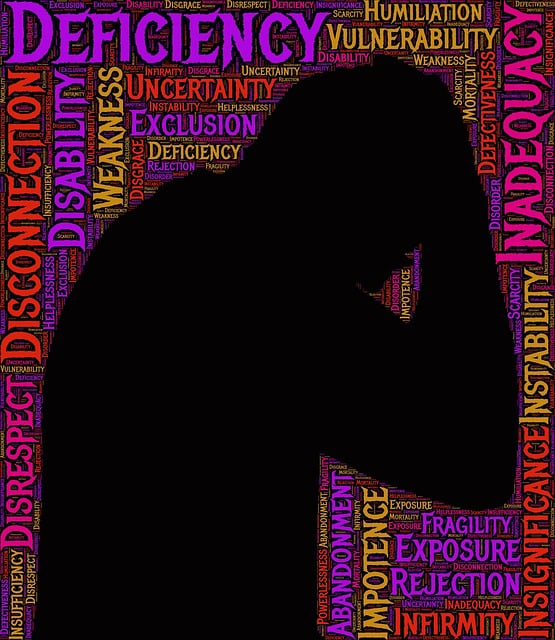In Highlands Ranch, American Sign Language (ASL) therapists play a vital role in crisis intervention and mental health support for deaf and hard-of-hearing individuals. By integrating their expertise into emergency services and community outreach programs, these therapists enhance overall mental wellness within the community. Well-designed outreach initiatives bridge the gap between crisis care and ongoing support, fostering cultural competency and ensuring timely interventions tailored to individual needs. ASL therapy serves as a crucial bridge during crises, enabling deep communication with hearing-impaired individuals. Post-crisis support focuses on recovery through tailored strategies like ongoing therapy, conflict resolution, and building inner strength, ultimately emerging stronger as a community.
In stressful times, effective crisis intervention strategies are vital for communities, especially in diverse areas like Highlands Ranch. This article explores the crucial role of sign language therapists in providing immediate support and long-term recovery assistance using American Sign Language (ASL) therapy techniques. From understanding crisis situations to implementing communication strategies and offering post-crisis care, we guide professionals navigating these challenges. Discover how ASL therapy enhances resilience within Highlands Ranch communities, ensuring a supportive environment for all residents.
- Understanding Crisis Intervention: A Key Role for Sign Language Therapists in Highlands Ranch
- Assessing the Situation: Identifying Needs and Prioritizing Actions
- Effective Communication Strategies: Bridging the Gap with American Sign Language (ASL)
- Post-Crisis Support: Nurturing Recovery and Resilience in the Community
Understanding Crisis Intervention: A Key Role for Sign Language Therapists in Highlands Ranch

In Highlands Ranch, American Sign Language (ASL) therapists play a pivotal role in crisis intervention strategies. Their expertise in both mental health and sign language facilitates effective communication with individuals who may be experiencing a crisis, ensuring that support is accessible to the deaf and hard-of-hearing community. By integrating their skills into emergency services and community outreach programs, these therapists contribute significantly to the development of comprehensive Mental Health Education Programs and Mental Wellness Coaching Programs.
Through the implementation of well-designed Community Outreach Program initiatives, ASL therapists bridge the gap between crisis care and ongoing mental wellness support. Their unique ability to convey complex emotional concepts through sign language helps individuals express their feelings and needs during high-stress situations. This not only enhances crisis intervention services but also promotes cultural competency within the healthcare system, ensuring that everyone in Highlands Ranch receives the compassionate and effective care they deserve.
Assessing the Situation: Identifying Needs and Prioritizing Actions

When providing crisis intervention, assessing the situation is paramount to identifying the needs of individuals involved, especially in diverse communities like Highlands Ranch. Professionals offering American Sign Language (ASL) therapy, for instance, must consider cultural nuances and communication preferences. This initial step guides the strategic response, ensuring that interventions are tailored to address specific challenges. By quickly evaluating risk factors and protective elements, therapists can prioritize actions that foster resilience building and emotional regulation.
For instance, in a crisis scenario, a Mental Wellness Journaling Exercise Guidance might be adapted for individuals with hearing impairments to facilitate emotional expression. Prioritizing actionable steps from the assessment ensures that interventions are not only timely but also culturally sensitive and effective. This is crucial in promoting positive mental health outcomes, especially in communities where unique communication methods like ASL play a significant role in daily life.
Effective Communication Strategies: Bridging the Gap with American Sign Language (ASL)

In crisis intervention settings, effective communication is key to providing immediate and impactful support. For individuals within the hearing impairment community, particularly those in Highlands Ranch who rely on American Sign Language (ASL) as their primary mode of expression, specialized communication strategies are essential. ASL Therapy serves as a bridge, enabling first responders, counselors, and caregivers to connect deeply with these individuals during stressful situations. By incorporating trained ASL interpreters into crisis intervention teams, we ensure that the unique needs of deaf and hard-of-hearing folks are met, fostering a sense of understanding and inclusivity.
Beyond visual communication, incorporating Compassion Cultivation Practices and Mental Wellness Journaling Exercise Guidance tailored for this population can further enhance crisis intervention strategies. A recent Mental Wellness Podcast Series Production highlighted the power of these practices in promoting resilience and coping mechanisms among deaf individuals. By integrating such diverse methods, crisis intervention teams can better navigate the complex landscape of mental wellness support, ensuring that no one is left behind or underserved.
Post-Crisis Support: Nurturing Recovery and Resilience in the Community

In the aftermath of a crisis, the focus shifts to post-crisis support, where the goal is to nurture recovery and resilience within the community. This critical phase involves various strategies tailored to meet the unique needs of individuals and groups affected by traumatic events. One essential aspect is providing ongoing therapy services, such as American Sign Language (ASL) therapy in Highlands Ranch, to address the psychological scars left behind. Trained therapists play a pivotal role in facilitating healing by offering safe spaces for expression and processing emotions.
Additionally, conflict resolution techniques and cultural sensitivity in mental healthcare practice are integral components of effective post-crisis support. By incorporating these strategies, communities can foster understanding and resolve tensions that may arise during such challenging times. Encouraging the development of inner strength is another key element, empowering individuals to rebuild their resilience and cope with future adversities. This holistic approach ensures that the community not only recovers from the crisis but also emerges stronger and more resilient.
In conclusion, effective crisis intervention in Highlands Ranch requires a multifaceted approach where American Sign Language (ASL) therapists play a pivotal role. By understanding crisis situations, assessing needs accurately, employing successful communication strategies like ASL, and providing post-crisis support, therapists can significantly contribute to fostering resilience within the community. These strategies, tailored for the unique needs of the Highlands Ranch area, ensure that individuals facing crises receive the critical assistance they need.










